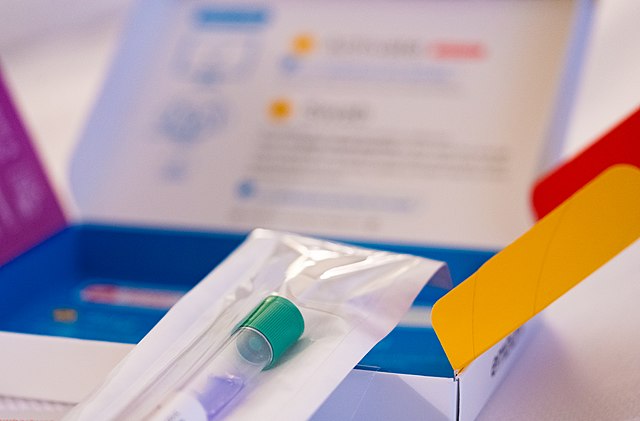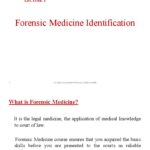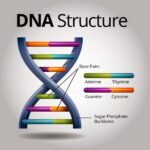The proliferation of at-home DNA testing kits in the United States represents more than just a fleeting trend. It speaks to a confluence of factors, ranging from technological advancements and decreasing costs to a deep-seated human desire for self-discovery and connection. The surge in popularity warrants a deeper investigation into the causative agents driving this phenomenon.
Firstly, the accessibility of genetic testing has been dramatically enhanced by technological progress. What was once a complex and expensive procedure relegated to research laboratories is now readily available to anyone with an internet connection and a credit card. Miniaturization of lab processes, automation, and high-throughput sequencing technologies have significantly driven down the cost of genotyping, making it affordable for a substantial portion of the population. The democratization of DNA analysis, hitherto a rarefied sphere, allows individuals to partake in exploring their own genetic blueprint.
Furthermore, the direct-to-consumer (DTC) marketing strategies employed by genetic testing companies have played a pivotal role in fueling demand. These companies adeptly leverage digital platforms and social media to reach a broad audience, crafting compelling narratives that resonate with consumers’ aspirations. The allure of uncovering ancestral origins, identifying potential health predispositions, and connecting with long-lost relatives proves to be a potent draw. Marketing campaigns often emphasize the empowering aspect of genetic knowledge, suggesting that understanding one’s DNA can unlock insights into personal traits, talents, and even future well-being. The perceived agency conferred by these tests appeals to a generation seeking self-optimization and personalized experiences.
The human quest for identity and belonging is another key driver. In an increasingly globalized and interconnected world, many individuals feel disconnected from their roots and seek ways to anchor themselves in a tangible sense of heritage. DNA testing offers a seemingly scientific means of tracing one’s lineage, revealing the geographical origins of one’s ancestors, and connecting with communities of shared genetic ancestry. The desire to understand “where I come from” is a fundamental human impulse, and genetic testing taps into this innate longing for a sense of place and historical continuity. The results, be they expected or surprising, become incorporated into personal narratives and contribute to a richer understanding of self.
The narrative of potential health insights is particularly persuasive. While DTC genetic tests cannot provide definitive medical diagnoses, they can identify genetic variants associated with an increased risk of certain diseases. This information can empower individuals to make informed lifestyle choices, engage in proactive health monitoring, and discuss potential preventative measures with their healthcare providers. For some, this is an exercise in preventative medicine. The perceived benefit of early awareness outweighs the potential for anxiety or uncertainty associated with learning about one’s genetic predispositions. This engagement with personal health data reflects a growing trend towards personalized medicine and a desire to take control of one’s health trajectory.
However, it is crucial to acknowledge the inherent limitations and potential caveats associated with at-home DNA testing. The accuracy of the results depends on the quality of the DNA sample, the algorithms used for analysis, and the reference populations employed for comparison. Interpretations can be complex, and the information provided should not be considered a substitute for professional medical advice. There are also concerns regarding data privacy and security, as genetic information is highly sensitive and potentially vulnerable to misuse. Consumers should carefully review the terms and conditions of genetic testing companies and understand how their data will be stored, shared, and used. Despite these considerations, the appeal of unlocking one’s genetic code remains strong.
The entertainment value and social connectivity aspects also contribute to the widespread adoption of these tests. Many individuals share their DNA results on social media platforms, engaging in discussions with friends and family members, and comparing their ancestry breakdowns. Online communities dedicated to genealogy and genetic ancestry provide forums for individuals to connect with distant relatives, exchange information, and collaborate on research projects. The gamified nature of some ancestry reports, with interactive maps and historical timelines, adds to the entertainment value and encourages further exploration. The ability to share and discuss one’s genetic journey with others enhances the sense of community and provides a shared experience.
In conclusion, the popularity of at-home DNA tests in the US is a multifaceted phenomenon driven by technological advancements, savvy marketing strategies, and fundamental human desires for self-discovery, connection, and empowerment. While it is essential to approach these tests with a critical eye and acknowledge their limitations, they represent a fascinating intersection of science, technology, and human curiosity. The trend underscores a broader societal shift towards personalized experiences, proactive health management, and a renewed interest in understanding our place within the vast tapestry of human history. The long-term implications of this genetic self-exploration remain to be seen, but it is clear that at-home DNA testing has fundamentally changed the way we perceive ourselves and our relationship to the world.










Leave a Comment